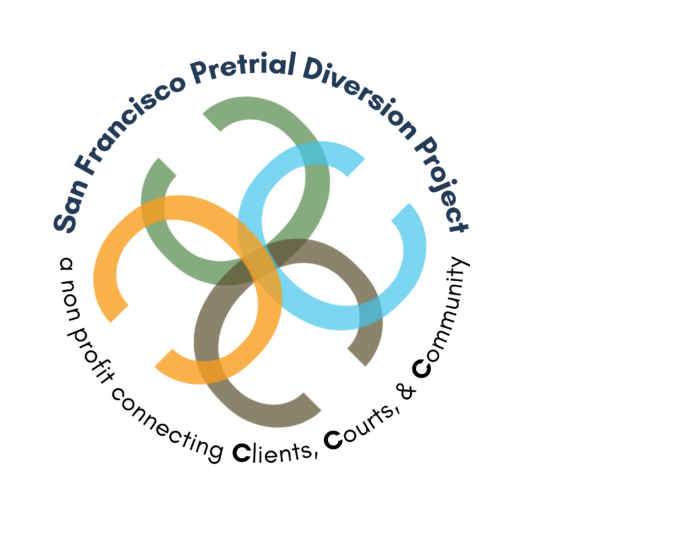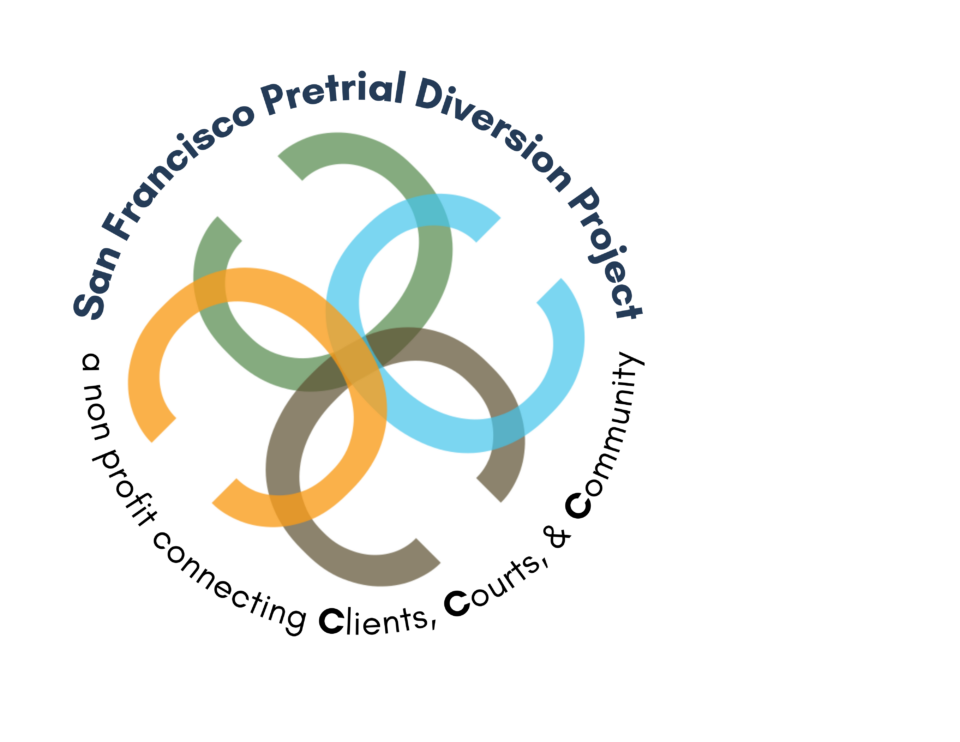As a community-based organization, our mission is to support system-impacted people to effectively navigate court processes, avoid future arrests and remain free of system involvement. We do this by providing culturally relevant pretrial services through a variety of programs. For over 48 years, we have supported the liberty interests of justice-involved people by providing safe, effective, and client-centered alternatives to incarceration.
SF Pretrial’s release programs are alternatives to incarceration and money bail. Rather than putting up a financial guarantee or remaining in jail, clients can be referred to one of our programs and receive individualized treatments and services. Our release programs vary in their intensiveness and may include phone or in-person check-ins with case managers, participation in therapeutic groups, and referrals to external housing and healthcare resources. These programs support clients in their efforts to appear for all court dates, abstain from justice involvement, and build relationships with community treatment providers.
Read Program Breakdown
- ACM provides clients with intensive, structured supervision. Clients check in several times a week and participate in treatment plans such as substance use and anger management groups facilitated either by SF Pretrial or other community partners.
- OR includes two supervision levels the court may assign clients to: No Active Supervision (OR-NAS), which doesn’t require client check-ins; and Minimum Supervision (OR-MS) which requires two phone check-ins a week. Both groups receive court date reminders.
- ICR offers a final point of prospective release for clients who weren’t released earlier due to serious charges or a significant history of legal misconduct. The program arranges immediate placement in out-patient or inpatient treatment programs, which gives the court greater confidence that clients will receive treatment and stay compliant.
SF Pretrial’s diversion programs are community-based alternatives to prosecution and fines, geared towards people with relatively little previous justice involvement. We connect newly arrested people with case managers who develop community supervision goals and guidelines, including treatment programs, community service projects, and therapeutic groups. Once the client completes the requirements of their case plan, their case is dismissed by the Court.
Read Program Breakdown
- PTD is geared towards individuals arrested on misdemeanor charges. Clients are assigned to a case manager and treatment requirements which, once completed, results in a formal dismissal of the client’s case.
- PCD is tailored to reduce the harms many children experience when separated from their caregivers. The program may include job training, parenting classes, substance use treatment and other mental health services.
- P20 provides alternatives to fines and fees. Clients are assigned to street beautification or other community services and upon completion, their fines are dismissed.
- NCT is a voluntary and confidential restorative justice program in which first-time misdemeanor offenders work with community members to address the harm done to the community. Outcomes are determined by community members to reflect local impact and public safety.
SF Pretrial’s bridge support services are tailored to address unique needs, offering comprehensive solutions for substance use, mental health, healthcare, and reintegration.
Read Program Breakdown
- Pretrial Treatment Project (PTP) is a voluntary treatment option for pretrial clients, partnering with Bay Area community providers to provide effective substance use and mental health treatment, including residential, partial hospitalization, and outpatient programs. Our primary focus is to remove barriers to treatment by ensuring that our clients have access to treatment that fits their unique needs.
- Enhanced Care Management (ECM) is a whole-person, interdisciplinary approach to care that addresses the clinical and nonclinical needs of members with the most complex medical and social needs. ECM provides systematic coordination of services and comprehensive care management that is community-based, interdisciplinary, high-touch, and person-centered. The goal of ECM is to coordinate all primary, acute, behavioral, developmental, oral, social needs, and long-term services and supports for members, including participating in the care planning process, regardless of setting.
- Our TAYA Release Initiative was launched to support TAYA clients between the ages of 18-24 to connect them with additional community support and access to services that include behavioral health, education, family support, parenting support, training and career development, creative arts, and more.
- The San Francisco Pretrial Diversion Housing Access Point plays a pivotal role in the Adult Coordinated Entry System, serving as a centralized gateway to San Francisco’s Homelessness Response System (HRS). Our Access Point offers comprehensive assessments to determine eligibility for Permanent Supportive Housing (PSH) opportunities, along with essential services such as relocation and move-in assistance, mediation, housing location support, and more. Established in a grant from the Department of Homelessness and Supportive Housing, our Access Point specifically caters to individuals who are justice-involved and experiencing homelessness. This expansion of our Coordinated Entry initiative ensures individuals receive critical housing support.
- Our In-House Groups are designed to satisfy both requirements set by the Court and the interpersonal needs of our clients. Clients attend groups based on the relevancy of the topic and curriculum; the options we offer include substance use, harm reduction, cognitive behavioral therapy, anger management, and a group focused on the social and cultural experiences of Latino people.
Our in-custody programs provide services and resources to our clients who are incarcerated, and support their eventual reentry into the community.
Read Program Breakdown
- Affordable Care Act Enrollment assesses healthcare status for our incarcerated clients. Case managers interview and assist clients who are soon to be released and are not yet enrolled with the enrollment process under the Act.
- Discharge Planning focuses specifically on people who are frequently arrested, and aims to break the cycle of their involvement in the justice system. Our case management team helps clients develop personalized reentry plans and determine which services will best promote improvement after release.
Read Program Breakdown
- Our Judicial Services Team ensures a strong and highly reputable relationship between SF Pretrial and the courts. The primary role of the judicial services team is to serve as a conduit between pretrial staff and legal stakeholders. Their presence in and out of the courtroom ensures our clients are informed of their court dispositions, referrals, court dates, and treatment plans.
- The Department of Policy & Evaluation (DPE) leads mission-critical initiatives to support SF Pretrial’s organizational performance, development, and overall health. The department oversees development of the OpenJustice database and drives data exploration, outcomes reporting, and program evaluation processes. Additional responsibilities include planning and facilitating onboarding for new staff members, collaborating with internal leadership to identify and secure training resources, and designing training programs. Finally, DPE leads internal and external presentations; maintains relationships with local, state, and national partnerships; and supports new program initiatives.
- The Director of Strategic Partnerships plays a crucial role in managing and expanding partnerships that contribute to organizational success and community engagement. Responsibilities include partnership coordination, community liaison activities, and supporting staff in client care initiatives. The role also focuses on identifying new partnerships and collaborating with the Executive team to achieve strategic goals.
Check Out Our Impact Report!
Click below for a comprehensive breakdown of our programs and their tangible impact. Explore detailed statistics and numbers to see the real difference we’re making in the community. Dive deeper into each program’s outcomes and learn more about our commitment to creating positive change.


